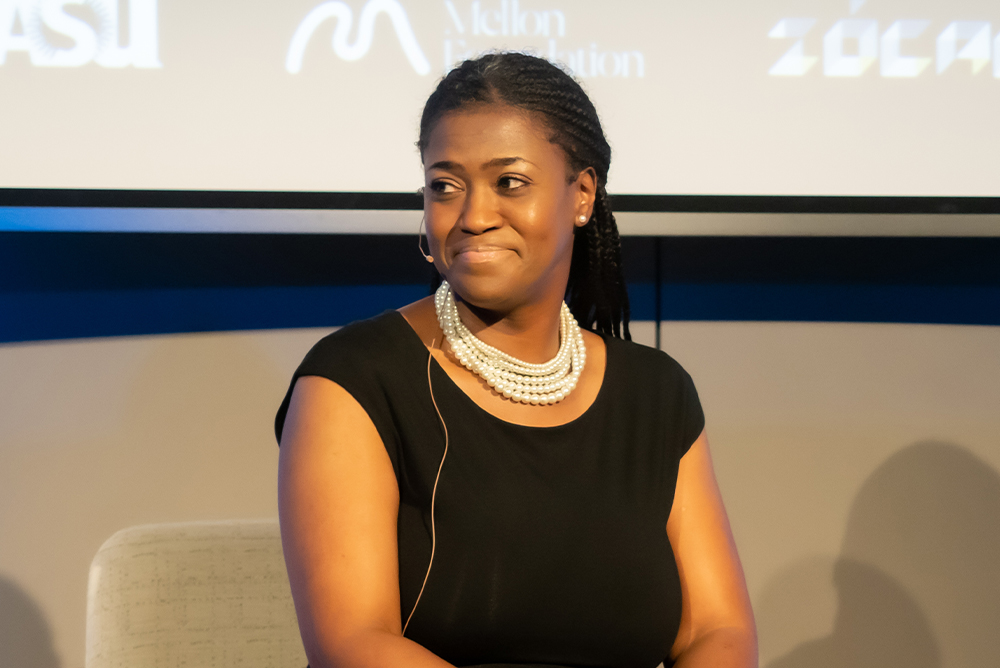
Photo by Tom & Kasi Beck.
Daphne Chamberlain is an associate professor of history and the vice president for strategic initiatives and social justice at Tougaloo College in Jackson, Mississippi. Before serving as a panelist for “What Kind of Monuments Do We Deserve?,” the second program in the Mellon-supported series “How Should Societies Remember Their Sins?,” she joined us in the green room to chat about archival finds, alternative career paths, and rethinking what a monument can be.
What is the last book you read that you loved?
It was a manuscript on a historical event that took place here in Jackson that is connected to Tougaloo College. I can’t say too much more beyond that. The author is a really good friend of mine. I was impressed with the amount of information that he was able to pull that sheds light on an event that has not been talked about in civil rights history.
What did you want to be growing up?
I’ll start by saying this: I fought not to become an educator. I thought I wanted to go to law school to do civil rights law. And then the first opportunity I got in graduate school to teach a class, I saw how engaged the students were and how I was able to make history come to life and get them involved in the conversation and understanding that they even have a voice in historical narrative. In hindsight, doing what I’m doing now is always what I meant to do. It was embedded in me.
What’s the last archival find that caught your eye?
Tougaloo College has a very rich archival collection. One of the last images I recently saw—because archivists bring stuff to me on a regular basis, like, “you’ve got to see this!”—were three images pulled from a collection of students who were protesting at Mississippi Valley State University in the 1960s. One of the young women look familiar. She was actually the first woman to serve as president of Tougaloo College, Dr. Beverly Hogan. Just to be able to see her—she’s someone who’s served as a mentor to me and inspired me through leadership as an African American woman who [like me] went to Tougaloo and graduated from Tougaloo. Now I have the opportunity to do the same things with those students that she did for me.
What’s one piece of advice you have for young people?
Don’t run away from your passion, run to it because you don’t know where it could lead you. It can open so many doors of opportunity.
What’s your favorite guilty pleasure?
Binge-watching shows on Netflix.
What are you watching right now?
I’m actually watching Starz right now. I’m part of this whole Ghost “Power Universe.”
What was the first monument that moved you?
I grew up in Northeast Mississippi, in Columbus, which is a pilgrimage city, and all these grand homes were part of the tours. So having to drive around those homes—for me, those were monuments. The more I learned and the older I got, and especially when I became a historian myself, it was really important to understand that those were monuments because of the enslaved people who built them. I think about how beautiful those homes were, and I think about and appreciate the people who built those homes, and gave blood, sweat, and tears and their freedom to make life better for people they didn’t even know about later on down the line like myself.



